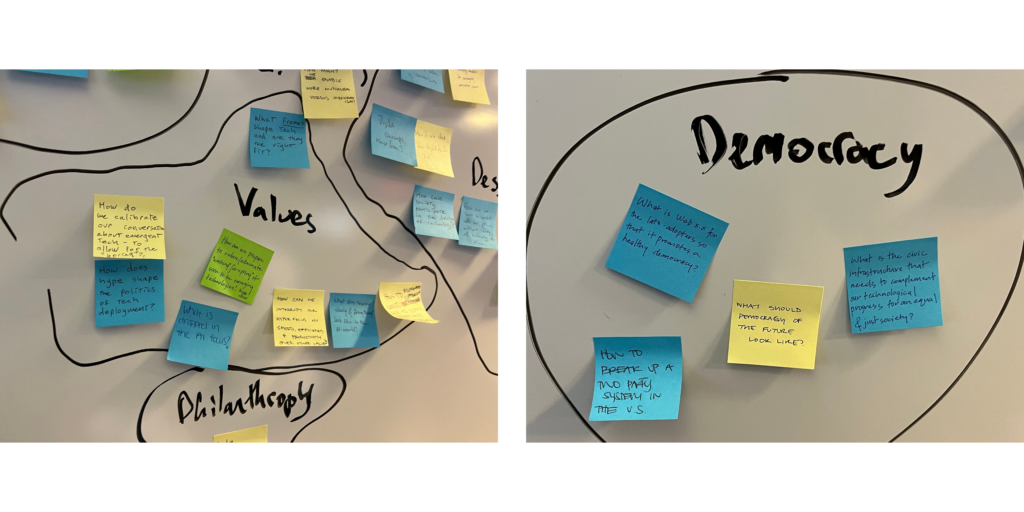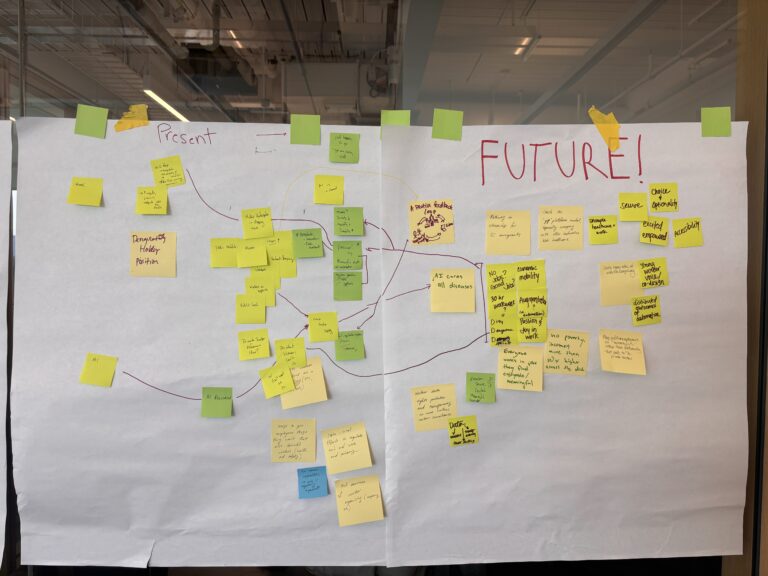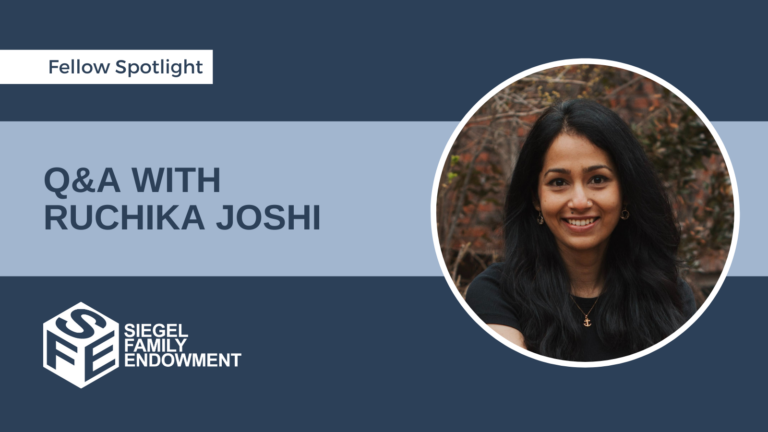From the Siegel Research Team
At Siegel, we aim to center our work – our grantmaking, our partnerships, and our research – around key questions regarding the impact of technology on society. We believe that when working within complex systems it is important to articulate the questions that guide and inspire us. By doing so, we aim to center active learning in all that we do. Towards that end, we have articulated specific learning questions that drive our grantmaking activities in our issue areas.
In addition to these issue-area specific questions, the Siegel Research Team set themselves the challenge of articulating “10 big questions” that we** should be grappling with in order to gain greater understanding of the challenges and opportunities that we all face. The list below captures our brainstorming at the end of 2023, and incorporates numerous refinements based on many discussions we’ve had in early 2024.
Methodology
Starting with only the idea of “ten big questions,” we first set parameters around the questions. As researchers in philanthropy, the team decided to stay within the orbit of Siegel’s mission and vision—focusing on the intersection of technology and society—but allowing the questions to extend beyond our existing grantmaking and programmatic expertise.
We kicked off the process with a whiteboarding session in which each team member drafted a handful of questions ranging from maximally broad (in one case, simply “Truth?”) to hyper-specific. Attention was paid to the time relevance of the questions; some questions more urgent and immediate, while others explored our interests in longer-term issues. We then identified and combined similar questions and further clustered the dozens of disparate questions into thematic buckets centered on emergent topics. After another round of internal deliberations, we identified ten themes that would help us specifically craft the 10 individual questions.

The next stage of the process was to put the 10 Big Questions through three rounds of feedback and revision. The first audience was the broader Siegel team, followed by our Research Advisory Council. Each discussion prompted us to make changes to the framing and the scope of our initial questions. Finally, in early 2024 we workshopped the questions at a retreat of the Siegel Research Fellows, during which the Fellows presented compelling inquiries into the questions, grouped themselves by question topic, and engaged in smaller discussions to help shape the list into its current form.
About the Questions
We do not attempt to be comprehensive – neither in the depth within any single issue nor in the breadth across issues; there are many, many other questions that are as important or more so than these. We also recognized that these questions also represent one snapshot in time – it would be easy to endlessly refine, redefine, and revise this list based on various discussions we’ve had with the Siegel Research Fellows, our Research Advisory Council, and our grantee partners.
We also recognize the diversity in how people will interpret the terms and ideas. For example, some may approach the ideas with a lens that race, class, and power are central to the underlying social systems and therefore to the questions that we are asking. Others may approach from a technology-first perspective and lead with a forecast of what is happening now and what is possible in the future. (And these perspectives, plus others, are not mutually exclusive!) These questions are thus not meant to represent a final consensus on any of these issues, but rather a starting point for discussion.
Call to Action
Our daily work is fueled by thought-provoking questions, enriched by the valuable insights of our network. Engaging with our partners on a daily basis allows us to gauge their concerns, inspiring further inquiry in an ongoing cycle. We welcome your engagement to:
- REFINE the Questions. Which questions from this list do you find most urgent and compelling? Are there any crucial inquiries that you feel are missing? Your feedback is essential in refining our focus.
- DEFINE the Terms. The most common kind of inquiry we’ve received about these questions in our early discussions was about how we are defining terms (like “technology”, “information ecosystems”, “human flourishing” etc.) Rather than articulate our own understanding (or our deliberate vagueness in many cases), we invite you to ask yourself how YOU would define the terms, and what other questions and ideas it might spark.
- DESIGN Research and Practices that might shed light on these questions.
We’re exploring interactive ways for a wider array of folks to engage with the questions, including office hours, community spaces, digital platforms, and at various conferences. In the meantime, use this form to share your thoughts.
The 10 Big Questions
AI and Inequality
How will AI adoption affect economic, social, and democratic inequalities?
Information
How do we promote trustworthy information ecosystems amid growing misinformation?
Design
How can we influence technology design to prioritize healthy communities and human flourishing?
Technology Policy
What kinds of governance models might be developed to address the harms of emerging technologies?
Civic Knowledge and Democracy
What kinds of digital civic knowledge infrastructures are needed to ensure a vibrant, representative and functional democracy in the 21st century?
Values
How can we promote values that counterbalance the tendencies towards speed, competitiveness, and individualism that drive technology development and adoption?
Philanthropy
How should philanthropy adapt to keep pace with the accelerating rate of technological change?
Research
How might we develop a rigorous and independent technology research ecosystem?
Participation, Inclusion, and Belonging
How do we foster community and belonging in a world of increasing isolation and intolerance?
Climate
How might we imagine our digital infrastructures to be climate-friendly?
What do you think? Share your thoughts with us here.
**The “we” in this context refers to communities at local, national and even international levels – these questions are aimed for us all to consider and perhaps to move towards a shared understanding of the contours of possible answers.





